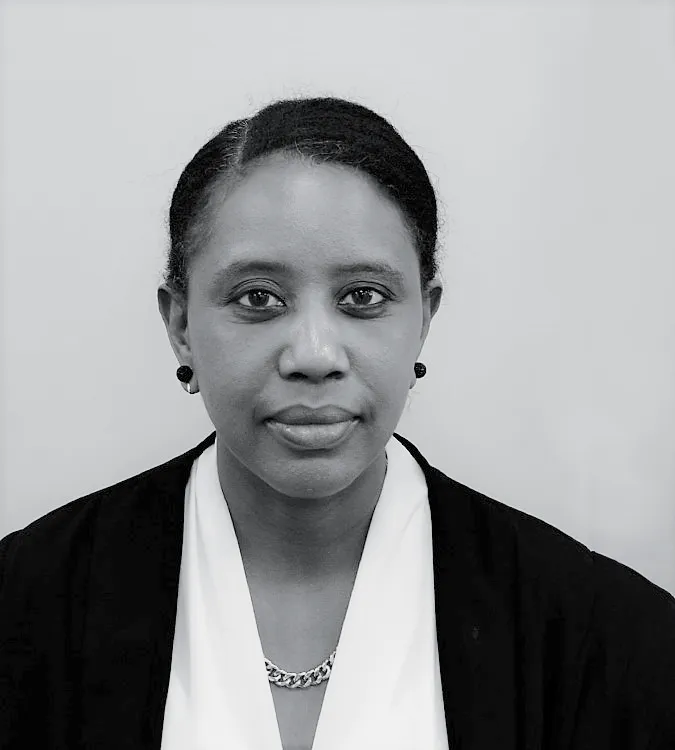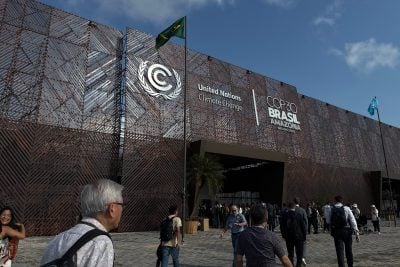The world market for carbon credits is growing rapidly – the year 2021 alone saw a 50% increase in real demand, with the value of the voluntary market estimated at anywhere between $40-$100bn by 2030.
With its vast natural resources this presents a huge opportunity for Africa. But at present it is estimated that the continent only generates around 2% of its annual potential for carbon credits.
The Africa Carbon Markets Initiative (ACMI) is an organisation aimed at amplifying Africa’s place in the global carbon markets.
ACMI, led by Sherif Ayoub, is a collaborative effort supported by Sustainable Energy for All, the United Nations (UN), the Global Energy Alliance for People and Planet (GF), and the Rockefeller Foundation.
Carbon markets allow governments and companies to buy and sell carbon credits to offset their carbon emissions. There are compliance markets, where companies are required by law to buy carbon credits to set off their emissions, such as the European Union’s Emissions Trading System (EU ETS) and voluntary carbon markets (VCMs) permitted under Article 6 of the 2016 Paris Climate Agreement.
ACMI aims to create, amplify, and sustain Africa’s participation in the VCMs, with the future possibility of entering compliance markets.
ACMI focuses on providing comprehensive support to stakeholders throughout the carbon credit value chain, including credit generation, trading, and sales. ACMI has identified three key areas of focus: demand side, supply side, and intermediation. The initiative aims to retire 300 million tons of carbon dioxide equivalent (CO2e) by 2030, mobilise $6bn in capital, and create 30m jobs. Looking ahead to 2050, ACMI aims to retire 1.5 to 2.5 gigatons of CO2e, mobilise $120-$200bn in capital, and create 110-190m jobs.
These targets serve as guiding principles to ensure Africa’s sustainable and inclusive growth through carbon market participation. On the supply side ACMI works with project developers across various sectors, such as clean cooking, blue carbon, peatlands, smallholder farmers, and mangroves, to enhance their capacity in generating carbon credits. The initiative focuses on curriculum development, engagement with accelerator platforms, and access to finance to overcome challenges faced by project developers.
Additionally, ACMI addresses regulatory aspects related to land rights, taxation, and infrastructure development, aiming to create an enabling environment for carbon market growth. On the demand side ACMI recognises the increasing demand for carbon credits in the VCMs.
The initiative encourages international buyers to consider African carbon credits, highlighting the co-benefits associated with projects on the continent. For instance, clean cooking projects in Rwanda save lives and improve health, while diesel displacement projects enhance rural farmers’ economic and health conditions.
ACMI has already secured commitments from companies like Standard Chartered, RY, TPG, and Nandos, and aims to attract more global buyers in the future.
Intermediation and fair pricing
Intermediation plays a crucial role in facilitating the efficient exchange of carbon credits between project developers and buyers. ACMI explores various platforms, both local and global, to ensure seamless trading of carbon credits generated in Africa. The initiative acknowledges the price disparity between African and European carbon credits and advocates for fair pricing to ensure justice and equity in the global carbon market.
ACMI also seeks to reduce transaction costs for project developers, enhancing their share of the benefits. While ACMI focuses on the voluntary and Article 6 markets, it remains cautious about entering the compliance markets, as it could potentially disrupt economic growth in Africa. However, the initiative aims to engage global bodies to consider opening compliance markets to African credits, providing a transformative opportunity for micro and small-medium enterprises (SMEs) in Africa.
ACMI also emphasises the need to address challenges related to transaction fees, verification processes, and access to regulatory frameworks to create a more favourable environment for African carbon market development.
ACMI strives to advance Africa’s participation in carbon markets, focusing on the voluntary markets. By creating an enabling environment, supporting project developers, attracting global buyers, and advocating for fair pricing, ACMI aims to unlock Africa’s immense potential in carbon credit generation. As the initiative progresses, it will continue to work towards sustainable and inclusive growth, promoting the co-benefits.
How can ACMI help set a fair carbon price for Africa?
Dr Sherif Ayoub, lead on ACMI at SEforALL, explains the problems facing Africa when it comes to getting a fair price for its carbon credits and what ACMI is doing to help redress the situation.
If you take two carbon credits, one generated out of Iceland or Norway, or any other Global North country and one generated in Africa, assuming that they’re both at the same level in terms of integrity, there is no particular reason why the European carbon credit or Japanese carbon credit sells for $109, $110, and the African one for $9, $8, sometimes even less.
That price disparity is a cause of concern for us. It’s something that we’re becoming more vocal about in terms of speaking to the global bodies, whether it’s within Europe or in Japan or other countries as well. This is something that we hope that we can get much faster traction on, for the sake of justice and equity – we’re not trying to sell a free lunch with African credits.
Part of the reason why the European ones sell for $109, $110 is the ETS scheme [see above]. The countries who are over-emitting need to be able to, by law or by regulation, issue carbon credits within that space. Part of this conversation here is as part of the support of the Global North to Africa to open up the compliance markets in Europe to African credits.
And I think that channelling some of these resources from the compliance markets in the Global North to, in this case, Africa, can have a transformative effect.
When I talk to some policy-makers the view is perhaps there could be an “inundation” of African credits within the compliance markets in Europe. I just don’t think the data supports that. I think the compliance markets in Europe, what we’re talking about here is $700bn plus per annum and the ones in Africa are actually quite low in comparison.
What will help, though, is that it will give the ability to the micro and SMEs, particularly in Africa, to benefit from the compliance markets that exist and from the carbon market space in Europe. So that’s close to our heart.
Another thing that I want to mention as well is that you have the African project developer who is, you know, selling the credits for $7, $9, $10, $11, $12, whatever it is around that range.
But they tend to pay anywhere from a third to two-thirds of that as transaction costs. What are these? These are the market process, which is the measurement, reporting and verification. A lot of times you would have to have an auditor because there’s not a lot of auditors and accredited agencies within Africa, which is something I see for all we’re trying to, to help with as well at ACMI. You’ll have to have somebody fly in from Europe or India to be able to audit the generation of credits.
These auditors, these flight tickets are not cheap, particularly for a micro project developer. And then obviously the fee that does have to pay for a various standards. And, and then the auditing process itself. So I think this is something that we want to examine as well.
So if you’re, if we’re saying that an African project developer. Is selling it for far less than a global price, they are paying anywhere between a third and two thirds in transaction fees. What ends up coming to the project developer in the communities that they support quite often is, is extremely meagre.
And this is, we shouldn’t be surprised when we take a look at the numbers in Africa for generating carbon credits, just because the economics sometimes don’t support it. And we have to take our hats off to the ones who’ve persevered through the process, and actually generate carbon credits in this particular environment.
So these are two areas that we need to take a look at. Transaction fees, to reduce those as much as possible by using whatever digital tools that we can have and automation. But then also to re-examine the access to compliance markets in the Global North.
This article is an abridged version of “Scaling Voluntary Carbon Markets in Africa through fair price discovery with Dr Sherif Ayoub”, which appeared in IC Intelligence Insight 09: Climate & Nature Redux. Click to view more articles from the report.
Want to continue reading? Subscribe today.
You've read all your free articles for this month! Subscribe now to enjoy full access to our content.
Digital Monthly
£8.00 / month
Receive full unlimited access to our articles, opinions, podcasts and more.
Digital Yearly
£70.00 / year
Our best value offer - save £26 and gain access to all of our digital content for an entire year!

 Sign in with Google
Sign in with Google 



